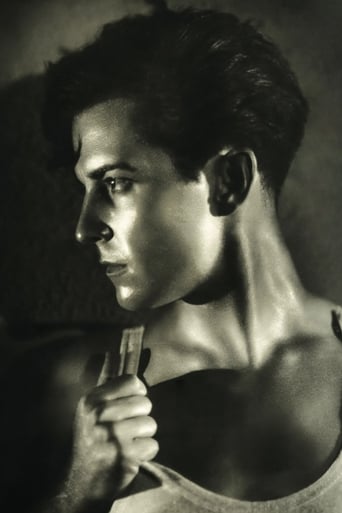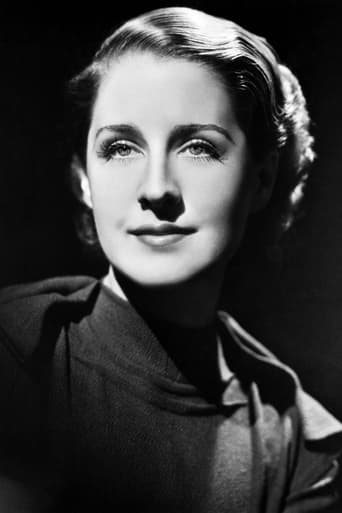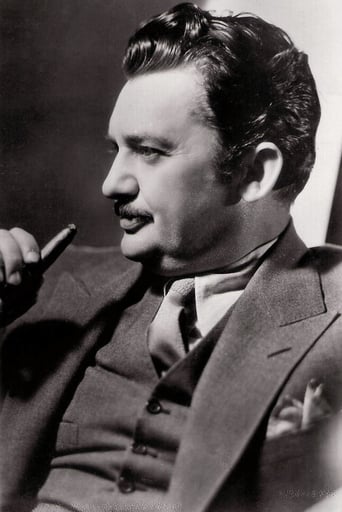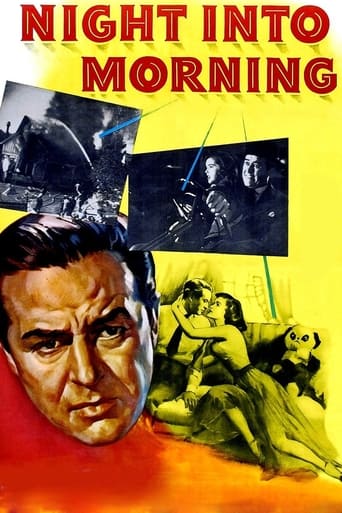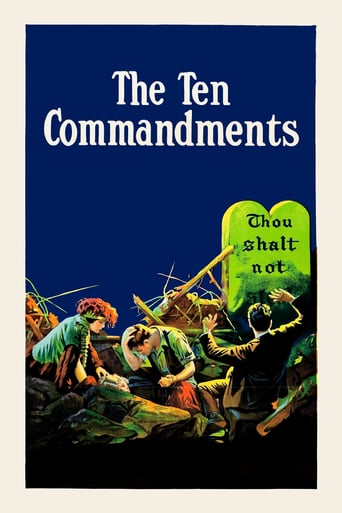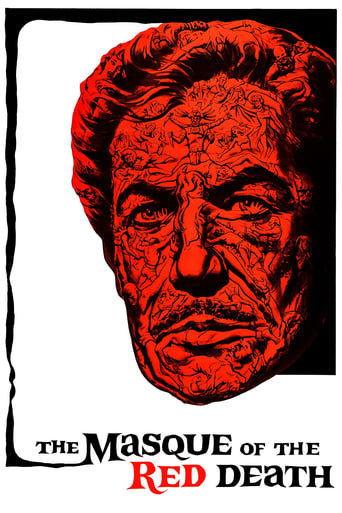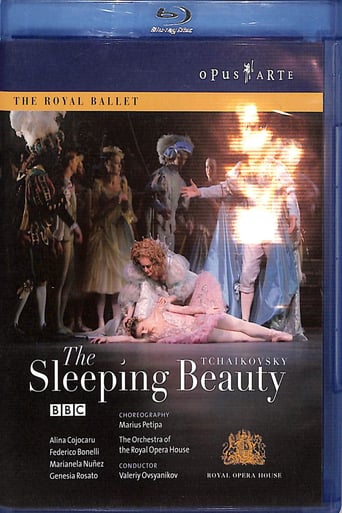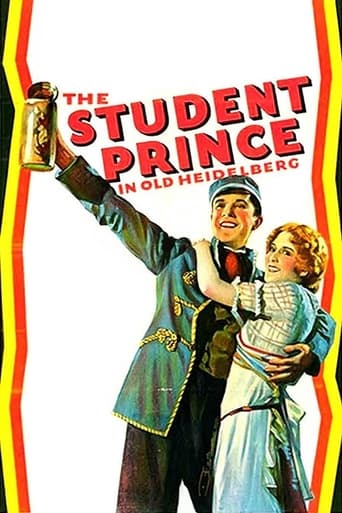
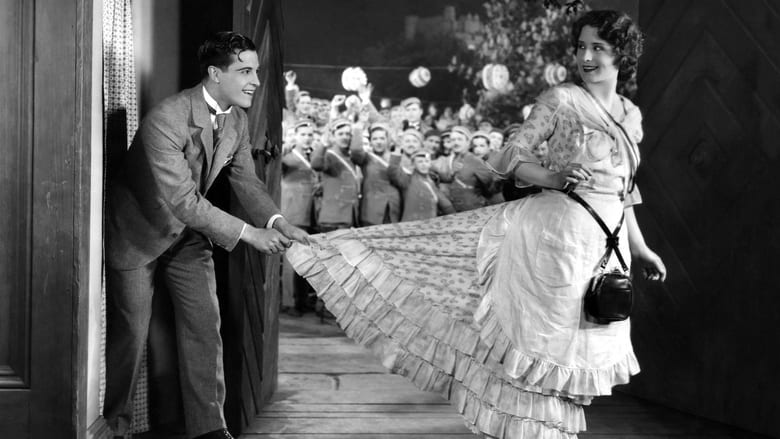
The Student Prince in Old Heidelberg (1928)
A young prince falls in love with a beautiful barmaid while at university in old Heidelberg.
Watch Trailer
Cast
Similar titles
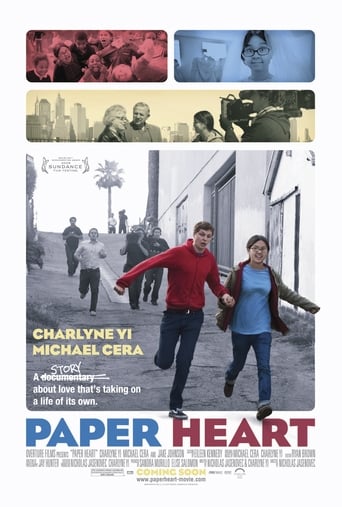

Reviews
It's fun, it's light, [but] it has a hard time when its tries to get heavy.
Great movie! If you want to be entertained and have a few good laughs, see this movie. The music is also very good,
To all those who have watched it: I hope you enjoyed it as much as I do.
It's a good bad... and worth a popcorn matinée. While it's easy to lament what could have been...
Heidelberg, Germany is truly a wonderful city!!! Locate on the river Neckar in south-west Germany. It is the fifth-largest in Baden-Württemberg, and an absolutely glorious place. Sadly, this movie doesn't use any of the real-life locations like the Heidelberg Castle, Hotel Ritter, Old Bridge, or Heidelberg University; choosing instead to film in Laurel Canyon, California for establishing shots. It's one of disappointing things about this film. The fake looking castle model and the lack of local sights, make this movie seem like the story can take place anywhere in Germany, but most of all, remind me, way too much of Munich. Why, because for most of all the film, it only show the beer garden and not enough of the schooling. It really doesn't fit that well with 'Old Heidelberg' motif that much. Still, I have to say, this is one of director, Ernst Lubitsch's finest films. It was well shot. The way, his crew shot the beer-garden with all the students in the opening was amazing and epic. Also, the way, he show the sands of time, toward the end with the hilltop was very powerful. Truly, this movie had the 'Lubitsch Touch'. Loosely based on the 1901 play 'Old Heidelberg' by author Wilhelm Meyer-Förster & the operetta 'Student Prince' by Sigmund Romberg, this sophisticated coming-of-age story tells the tale of an melancholy introvert prince, Karl Heinrich (Ramón Novarro) trying to escape the strict reality of his imprisonment world by travelling to Heidelberg as a student, in attempt to learn what love and comradeship is really about, with the help of a beautiful barmaid, named Kathi Ruder (Norma Shearer). Without spoiling the movie, too much, I have to say, unlike other fairy tale silent films, I had watch. This movie wasn't really boring. Yes, it does have some slow moments in the beginning, but toward the end, the pacing really does pick up. The story was very entertaining for most part, despite having no sound and song numbers. I think, the reason why it works, is because how compelling the acting from both of the main actors, were. While, the romantic chemistry of the two, might be questionable, seeing how one of the actors is gay in real-life, and how the movie doesn't really establish, a good reason for them to fall in love, besides 'love in first sight'. I have to say, both, do work with each other, somewhat well, even if Karl seem a bit 'forceful'. I think, the reason, why I love these two actors, so much in this film, wasn't because of their chemistry for each other, but the way, they were able to show, loneliness and a sense of longing. It's the reason why, I have to disagree with the director feelings that these two roles were miscast. However, it does seem somewhat odd that they would hired a Mexican-American and Irish American for a German role. Despite that, both were charming enough to keep me, interested. Plus, it does help that both of the main performers were very good-looking. I don't care, if Florenz Ziegfeld turn her down, because of her crossed eyes and stubby legs. Norma Shearer is one attractive lady. This was a break-out role for her. The same, goes to Novarro who was promoted by MGM as the next "Latin lover". He really became known as a sex symbol after the death of Rudolph Valentino. It just suck, that he got murder, later in his life. Another reason, why this film, somewhat work for me, was because the witty jokes and humor. It was very funny. Very few misses. Much of this success, goes to supporting actor, Jean Hersholt for the way, he portray, Dr. Friedrich Jüttner, Karl's sympathetic mentor. The way, he interact with his co-stars, makes his scenes, some of the best, in the film. Another reason, why I love this film, is the soundtrack by composer Carl Davis & English Chamber Orchestra gives for the home video reissue. It was very captivating. Added to the remastered version, with very few film grain. Then you have a very watchable movie. Overall: Even with the downer ending, the lack of music, the over promoting of alcohol abuse & cigarette smoking, I still found myself, glue to my screen. In my opinion, this movie is way better than 1954 or 1959 color versions or any of the previous films like 1915's 'Old Heidelberg' or the 1923's German version, combine. It's truly a classic that needs to be seen. Highly recommended checking out.
Ramon Novarro (as Karl Heinrich) is the Crown Prince of Karlsburg. He is envied by his subjects, but lonely and isolated behind castle walls. Quite Princely in appearance, and capable of performing royal duties, he is, nonetheless, not enamored with dutiful royalties. With help from tutor Jean Hersholt (as Dr. Juttner), he becomes an honor student, and is goes to university at Old Heidelberg. There, he meets and falls in love with commoner Norma Shearer (as Kathi)."The Student Prince in Old Heidelberg" is a first rate silent film production, expertly directed by Ernst Lubitsch. Mr. Novarro is appropriately exuberant as the young Prince - his performance is excellent throughout, but really starts to dazzle in the scenes beginning with his witnessing of Ms. Shearer's downing a German beer. Mr. Hersholt is great as Novarro's tutor; both men are superior with the necessary "silent screen" acting, and the more forward "underplaying". Ms. Shearer is just a step behind her co-stars in artful acting; but, it's a a gap she will very quickly fill. Shearer is terrific in the scene when she learns Novarro is leaving, and helps him pack. Philipe de Lacy is notable, playing the Prince as a boy; his characterization matches the older Novarro - director Lubitsch directs these early sequences effectively, creating the image of a young prince in his castle prison.When a couple of important people in the Prince's life die, the story becomes necessarily more somber in tone. Of course, Novarro must eventually become King - these scenes are beautifully symbolic, and extraordinarily well photographed. The visit by an old friend prompts Novarro's return to Old Heidelberg, with unexpected results. Don't miss a later scene, when Novarro returns to his Old Heidelberg bedroom - especially, watch how Novarro briefly strokes his bed, obviously thinking of Shearer; it's a superb little bit of sexual suggestion. It would be nice to know whether the gesture originated with Novarro or Lubitsch - but, it's probably not possible to determine. "Is it Good to be King?" You'll know when you see Novarro's beautifully acted final scene, in his royal carriage - certainly, it's one of the most memorable performances in silent cinema. ********** The Student Prince in Old Heidelberg (9/21/27) Ernst Lubitsch ~ Ramon Novarro, Norma Shearer, Jean Hersholt, Philippe de Lacy
Watching PYGMALION after seeing MY FAIR LADY is one thing. Both films stand on their own two feet--and besides, PYGMALION came first. Even without Lerner and Lowe's music, PYGMALION is a truly wonderful film.Watching a silent STUDENT PRINCE without a Romberg melody blasting away from Carl Davis' score is another matter. Nor does NORMAL SHEARER, sporting an unattractive hairdo that makes her look matronly, look the part of a youthful barmaid, Kathi. RAMON NAVARRO plays the prince with a puppy dog eagerness and a winning smile but nothing to suggest believable chemistry with him and the dowdy looking Shearer. Surely, there must have been a better hairdresser for this particular film to at least give her a more youthful look. She ovedoes the coy flirtatiousness of the early scenes, batting her eyelashes at every drinking student.There's a certain heavy-handedness to Ernst Lubitsch's direction and an excessive amount of men doffing their hats to each other. And the final reunion scene with Navarro not getting the warm welcome from friends that he expected, is a bit overdone. These are things the silent technique probably could not avoid, even with a director like Lubitsch who is known for "that touch." On the plus side, JEAN HERSHOLT is excellent as an amiable and kindly adviser to the prince and gives warmth to the role. The Carl Davis score played by a full orchestra is delightful but one does miss hearing the hero and heroine sing the familiar operetta songs by Romberg, especially during the student drinking scenes.One has to wonder what the film was like on original release without a score like Davis wrote for the restored version. Strange indeed to have a silent film based on a famous musical.Needless to say, not my favorite Shearer film--and I enjoyed Navarro more in BEN-HUR.
Their finest year Nineteen Twenty-Seven was the year of miracles. Motion Pictures reached a parity of technology and creative expression, resulting in the greatest collective output of this or any other year, unsurpassed in both quantity and astonishing quality. It was the year of F. W. Murnau's masterpiece Sunrise and Frank Borzage's 7th Heaven, both starring Janet Gaynor, both produced by Fox and both showered with generous and well deserved awards. While Chaplin was missing from 1927, two of film's comic legends produced what many consider their finest work. Buster Keaton's Civil War tale The General and Harold Lloyd's rural gem The Kid Brother appeared. A banner year for Weimar Cinema, UFA produced G. W. Pabst's beautiful but nearly forgotten The Love of Jean Ney and Fritz Lang's futuristic nightmare, Metropolis, while French master Able Gance released his monumental epic, Napoléon. In the year Kevin Brownlow described as "Annus Mirabilis," Hollywood leader MGM contributed Greta Garbo and John Gilbert in Love, an adaptation of Tolstoy's Anna Karenina and a breathtaking Ernst Lubitsch production, The Student Prince in Old Heidelberg. The Student Prince in Old Heidelberg (1927)Friday, July 13, 7:00 p. m., The Castro, San FranciscoBased on Wilhelm Meyer-Förster's story of doomed romance between a young prince and an innkeeper's daughter, The Student Prince in Old Heidelberg (1927) was released by MGM following Sigmund Romberg's Broadway Operetta in 1924. Director Ernst Lubitsch offered a flattering combination of humorous chiding, casual effervescence and tragic duty-before-love resignation, in this lyrical adaptation, his eighth American film.The wealth of craftsmanship and technology available within Hollywood's greatest studio is visible in the lighting, editing and photography of each and every frame. Starring in one of her finest roles as Kathi, Norma Shearer rivaled any actress on the lot. She was cast in the best productions, under the aegis of her future husband, executive producer and boy genius Irving Thalberg. As Prince Karl Heinrich, Ramon Novarro's expression of naive exuberance contrasted perfectly to the militaristic reality of his royal obligation. The cast was rounded out by a group of consummate supporting characters including, Jean Hersholt, Gustav von Seyffertitz and everyone's younger self, Philippe de Lacy.A master of light comedy, Lubitsch fails to demonstrate the depth of despair and tragedy seen in the films of Borzage, Seastrom and others, but the exhilarating high entertainment of The Student Prince in Old Heidelberg is only matched by the exceptional beauty of the principle actors. Lubitsch conveys their shared desire by superimposing their eager faces, plunging the camera into close-ups and revealing the Prince's desperate fantasies of what can never be. With the timidity of a sheltered child, Karl Heinrich enters the beer garden below his rooms, seeking the acceptance of his classmates and Kathi's love. Lubitsch choreographed the swarming mass of uniformed and attentive young men with such fluid mastery, they seem to extend and punctuate every movement and gesture Karl Heinrich and Kathi make. At the moment their love is realized, they withdraw from reality, reclining in a fantasy of luminous flowers, beautiful, unreal and impossible.
